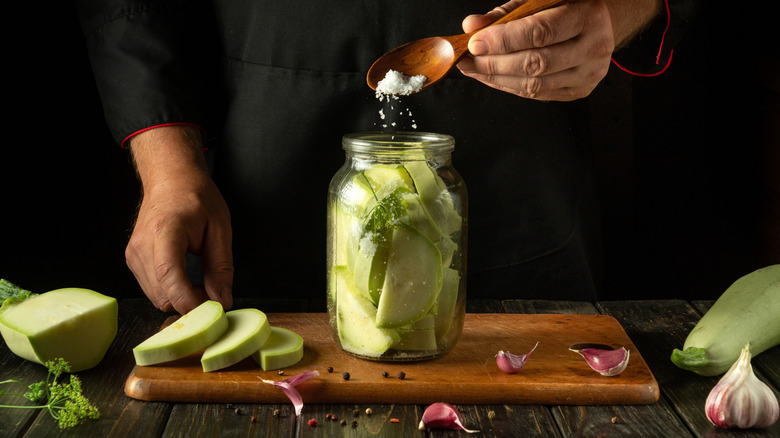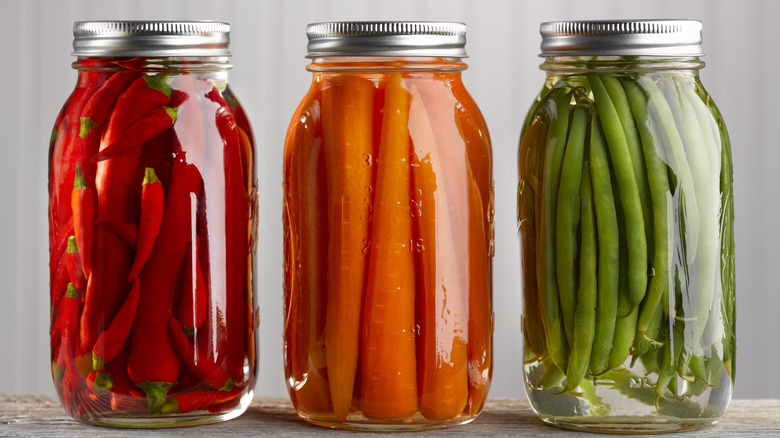What Makes Canning Salt So Different From Table Salt?
It's pickling day! You've got your jars. You've got your vinegar. But you just realized you're fresh out of canning salt. You start eyeing your table salt and wonder the age-old question for novice canners: can you substitute table salt for canning salt? The answer? Mmm, better not. But why? What makes these kitchen staples so different from each other?
Unlike table salt, which is usually fortified with iodine and anti-caking agents, canning salt is pure no-frills sodium chloride. With the additives in table salt, it can wreak havoc in the world of pickling, turning your brines cloudy and your pickled veggies darker. For anyone wanting those Instagram-worthy jars of bright pink onions or Chicago-style giardiniera, canning salt is the way to go.
Another way these salts differ is in their texture. Canning salt's granules are extra fine so that they dissolve quickly and evenly for brines. This makes it perfect for fermentation projects and pickling where clarity and consistency really do matter. Table salt, on the other hand? Well, its coarser texture and extra ingredients make it less than ideal, especially if you're wanting that picture-perfect jar of pickles.
Do you actually need canning salt to pickle like a pro?
While canning salt is the gold standard for preserving, it's not a total deal breaker if you don't have it on hand. If you're in a pickle, you can make some adjustments — but proceed with caution. A substitute option like kosher salt will do, but it's important that you make sure it's additive-free. Measure by weight, not volume, to account for varying granule sizes, and give this coarser salt a spin in a food processor to speed up its dissolving time in the brine. Sea salt can also work, but aim for varieties with the smallest granules you can find. The key is making sure the salt is as close in purity and texture as possible.
Regular table salt, though safe to use, is at the bottom of desirable options. Its anti-caking agents not only cloud the brine but can alter the taste and color of your preserved goods. If you do use table salt, just be sure to lower your expectations for visual perfection. And while your jar will still pack a vinegary punch, don't say we didn't warn you when your pickled hard boiled eggs turn an unappetizing shade of brown.
Just remember, canning salt's simplicity comes with a caveat: it's prone to clumping. Store it in an airtight container to keep the moisture out, and you'll have a long-lasting supply for all your pickling projects. After all, in the battle of brines, canning salt is the undisputed champ.

